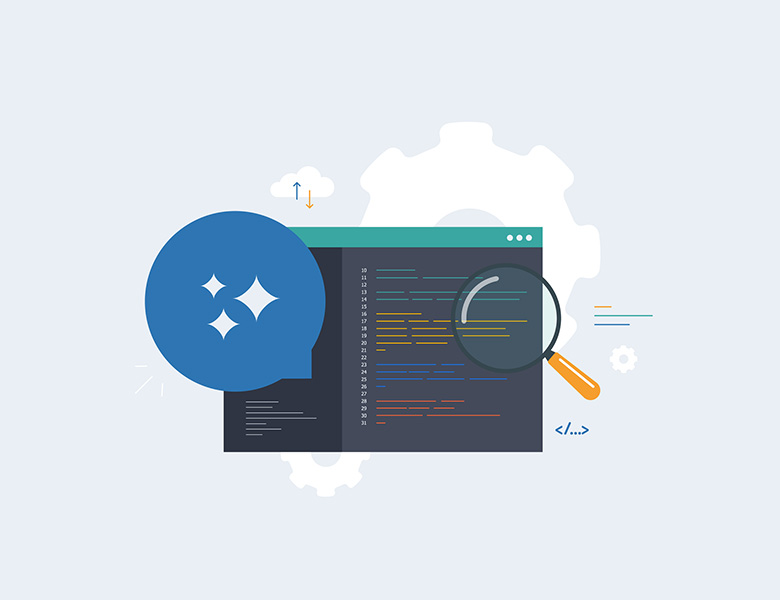Fast changing artificial intelligence (AI) is driving a major demand for specialized expertise. The days when one data scientist was supposed to oversee all facets of artificial intelligence evolution are over. Rather, companies are looking for highly specialized roles that will manage different parts of artificial intelligence initiatives.
This change marks a departure from past ideas of artificial intelligence talent. Published somewhat more than a decade ago, the well-known piece "Data Scientist: The Sexiest Job of the 21st Century" helped to inspire the idea that hiring a data scientist would release the AI potential of a company. Many companies at the time thought a single data scientist with a broad skill set could enable them to compete with industry titans like Amazon and LinkedIn. Reality, however, presented a different picture—finding people with expertise spanning data engineering, modeling, deployment, and business application proved to be an impractical expectation.
By now, we find a far more complex split of AI-related roles. Reflecting the growing complexity of AI-driven projects, demand for AI engineers, artificial intelligence consultants, and other specialized professionals has exploded. Ranked as the top two most in-demand positions in a recent LinkedIn Jobs on the Rise report, artificial intelligence engineer and AI consultant highlight this trend. This change points to companies realizing they need a methodical, multidisciplinary approach for artificial intelligence development.
The Growing Specialization of AI Roles
AI teams are no longer built around a single data scientist; instead, they now consist of multiple specialized roles, each contributing to different stages of AI implementation. Some of the most prominent roles today include:
Data Engineer: The Foundation of AI Projects
By making sure that high-quality, well-structured data is available for modeling, data engineers are absolutely essential in the continuing development of artificial intelligence. Their roles historically included gathering and converting data for machine learning models. But modern data engineering now also involves the following:
- Managing real-time data streaming and processing.
- Ensuring efficient data pipelines for AI training.
- Specializing in specific areas such as generative AI, cloud-based AI, or fine-tuning large language models.
Data engineers are under great strain as data pipelines get more complex, which results in industry-wide burnout. To prevent overburdening individuals and guarantee system dependability, many companies are now assigning tasks to several engineers.
Data Scientist: From Theoretical Models to Business Impact
Although data scientists' importance is still very much felt, over the past ten years their role has changed. Originally, often working in isolated laboratory environments, data scientists concentrated on theoretical model development. Businesses quickly came to see, though, that successful real-world applications did not always follow from well-performing models in research environments.
Modern data scientists now focus more on:
- Business-oriented model development and experimentation.
- Leveraging pre-trained models rather than building from scratch.
- Collaborating closely with engineers to align models with practical business needs.
This change toward business impact is causing companies to give applied artificial intelligence solutions top priority over perfect theory.
ML Engineers and MLOps Engineers: Bridging Development and Deployment
AI models are only valuable as long as they can run consistently in production. Here is where MLOps (machine learning operations) and ML engineers come in. These roles carry responsibility for:
- Deploying models efficiently and ensuring stable performance.
- Implementing monitoring systems to detect performance drift.
- Managing model lifecycle processes, including retraining and updates.
ML engineers and MLOps experts help make sure AI solutions offer continuous business value and go beyond proof-of-concept phases.
AI Engineer: The Hottest Role of 2025?
The AI engineer role is emerging as one of the most sought-after positions in the industry. Similar to data scientists and ML engineers, AI engineers focus on selecting, fine-tuning, and implementing generative AI models for solving complex problems and improving business processes.
What makes AI engineers unique is their broad skill set, which often overlaps with:
- Data science (working with AI models).
- Software development (integrating AI into applications).
- Cloud computing (deploying scalable AI solutions).
Interestingly, AI engineers are being recruited not only from traditional data science backgrounds but also from software development roles. This trend reflects the increasing importance of software engineering principles in AI implementation.
The Challenge of Hiring and Upskilling AI Talent
Companies are suffering a major talent gap as AI roles grow more specialized. Simply said, there are not enough experts with the necessary qualifications that could cover these roles. Businesses are therefore looking to upskilling initiatives to equip their current staff.
Upskilling initiatives focus on:
- Providing software engineers with AI-specific training.
- Teaching data engineers the intricacies of generative AI.
- Equipping business strategists with AI literacy to make informed decisions.
Beyond investing in internal upskilling—which can offer a strong competitive edge—companies can also explore hiring external specialists to complement their in-house expertise.
Understanding AI Maturity and Organizational Readiness
AI adoption isn’t a one-size-fits-all solution. Every organization needs to assess where it stands in terms of AI maturity and determine the approach that aligns best with its capabilities and strategic objectives. Some businesses may be ready to build and deploy AI models in-house, while others might benefit more from third-party solutions or gradual integration.
Based on a McKinsey study, What Every CEO Should Know About Generative AI, important considerations companies must have before using artificial intelligence include:
- Talent availability: Does the company have the right expertise, or will it need to invest in upskilling or external hires?
- Proprietary data: Is there a solid data infrastructure to support AI applications effectively?
- Process adjustments: What operational changes are required to integrate AI into existing workflows?
- Cost feasibility: Are financial resources available to fund AI development and deployment?
Beyond technical readiness, the report underscores the critical role of AI strategists—business leaders who collaborate closely with AI teams to align technology initiatives with broader company goals. These professionals help ensure that AI investments are not just technically feasible but also drive tangible business value. Without this strategic oversight, companies risk implementing AI for the sake of innovation rather than for meaningful impact.
In the end, a good artificial intelligence plan calls for business alignment as much as technical execution. Companies that approach problems carefully and methodically will be more suited to transform artificial intelligence into a real competitive advantage.
The Future of AI Talent: What Lies Ahead?
Demand for specialized skills will keep rising as artificial intelligence expands, consequently influencing new career routes and industry trends. Companies and educational institutions both will have to change with times in order to stay current.
Here are some key trends expected to define the AI job market in the coming years:
- More structured AI career paths: Universities and training courses will extend their AI-oriented courses, providing specialized tracks in machine learning, artificial intelligence ethics, and artificial intelligence product management to fit industry demand.
- A shift toward custom AI solutions: While off-the-shelf AI tools exist, businesses will increasingly recognize the need for tailored AI models that address their unique challenges. This will drive demand for skilled AI engineers who can build and fine-tune custom solutions.
- Increased focus on AI ethics and governance: As AI becomes more deeply integrated into business operations, organizations will need dedicated professionals to handle AI ethics, security, and regulatory compliance, ensuring responsible and transparent AI use.
- The rise of AI product managers: These professionals will play a crucial role in bridging the gap between AI development and business objectives, ensuring AI-driven products are both technically sound and aligned with user needs.
The AI workforce of the future will require a blend of technical expertise, strategic thinking, and ethical oversight. Companies that proactively invest in AI talent development will be better positioned to leverage AI’s full potential while navigating its challenges responsibly.
The Takeaway
The landscape of AI talent has come a long way from the early days of the mythical "unicorn" data scientist. Today, AI development requires a highly specialized workforce with distinct roles spanning data engineering, model development, deployment, and strategic planning.
Organizations trying to remain competitive in the era of artificial intelligence must adjust to these talent changes. Whether by internal upskilling or strategic hiring, companies have to provide the correct combination of AI knowledge to fully utilize this transforming technology.
One thing is obvious as artificial intelligence keeps changing sectors: the need of well defined roles and organized AI plans has never been more critical.
How Solwey Can Help
Solwey is a boutique agency established in 2016 focusing on customers' success through excellence in our work. Often, businesses require simple solutions, but those solutions are far from simple to build. They need years of expertise, an eye for architecture and strategy of execution, and an agile process-oriented approach to turn a very complex solution into a streamlined and easy-to-use product.
That's where Solwey comes in.
Our seasoned team of experts blends innovation with a deep understanding of technology to create solutions that are as unique as your business. Whether you're looking for cutting-edge ecommerce development or strategic custom software consulting, our team can deliver a top-quality product that addresses your business challenges quickly and affordably.
If you're looking for an expert to help you integrate AI into your thriving business or funded startup get in touch with us today to learn more about how Solwey can help you unlock your full potential in the digital realm. Let's begin this journey together, towards success.





